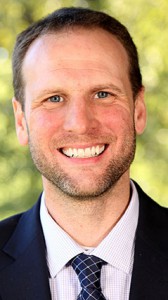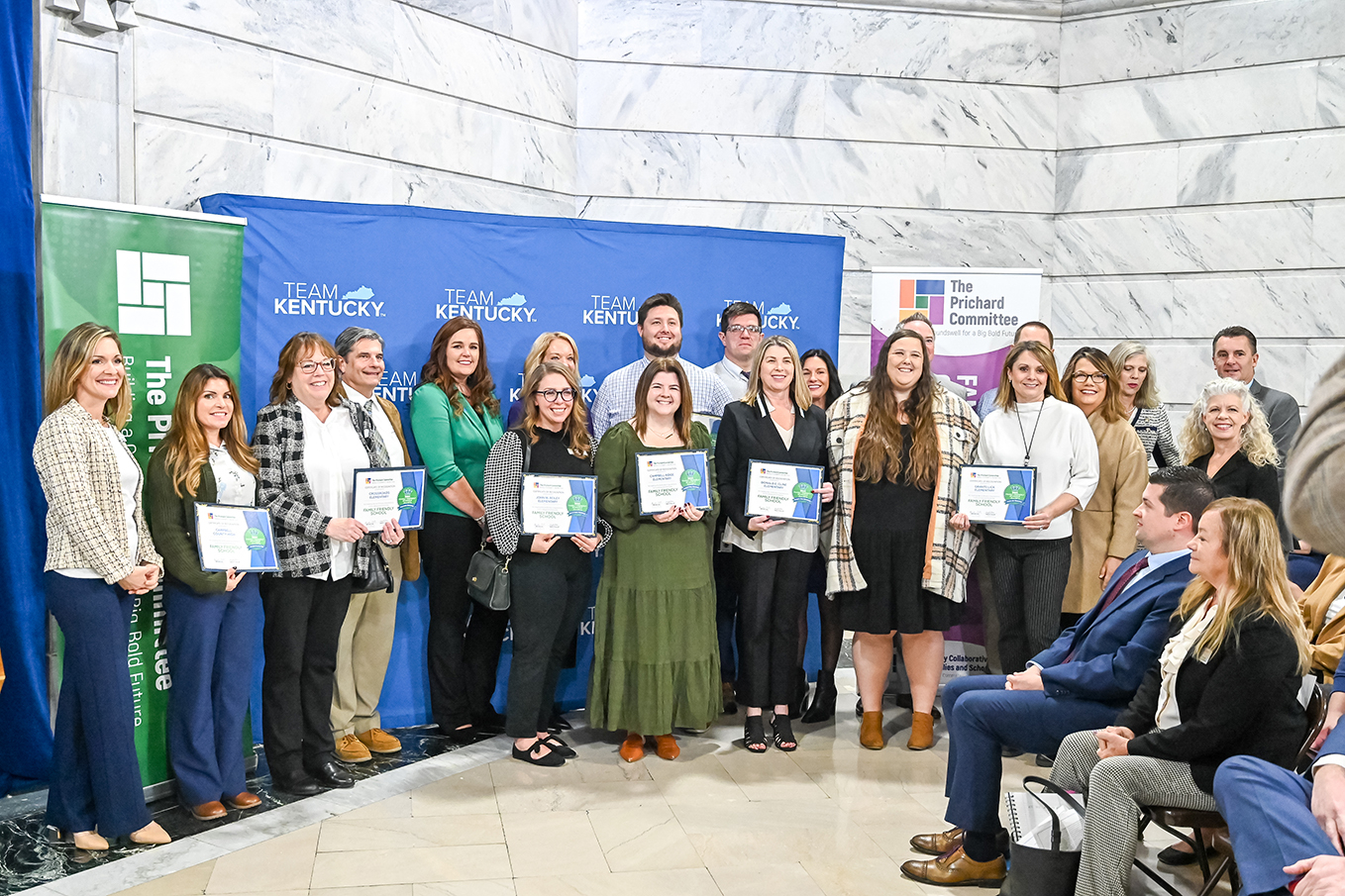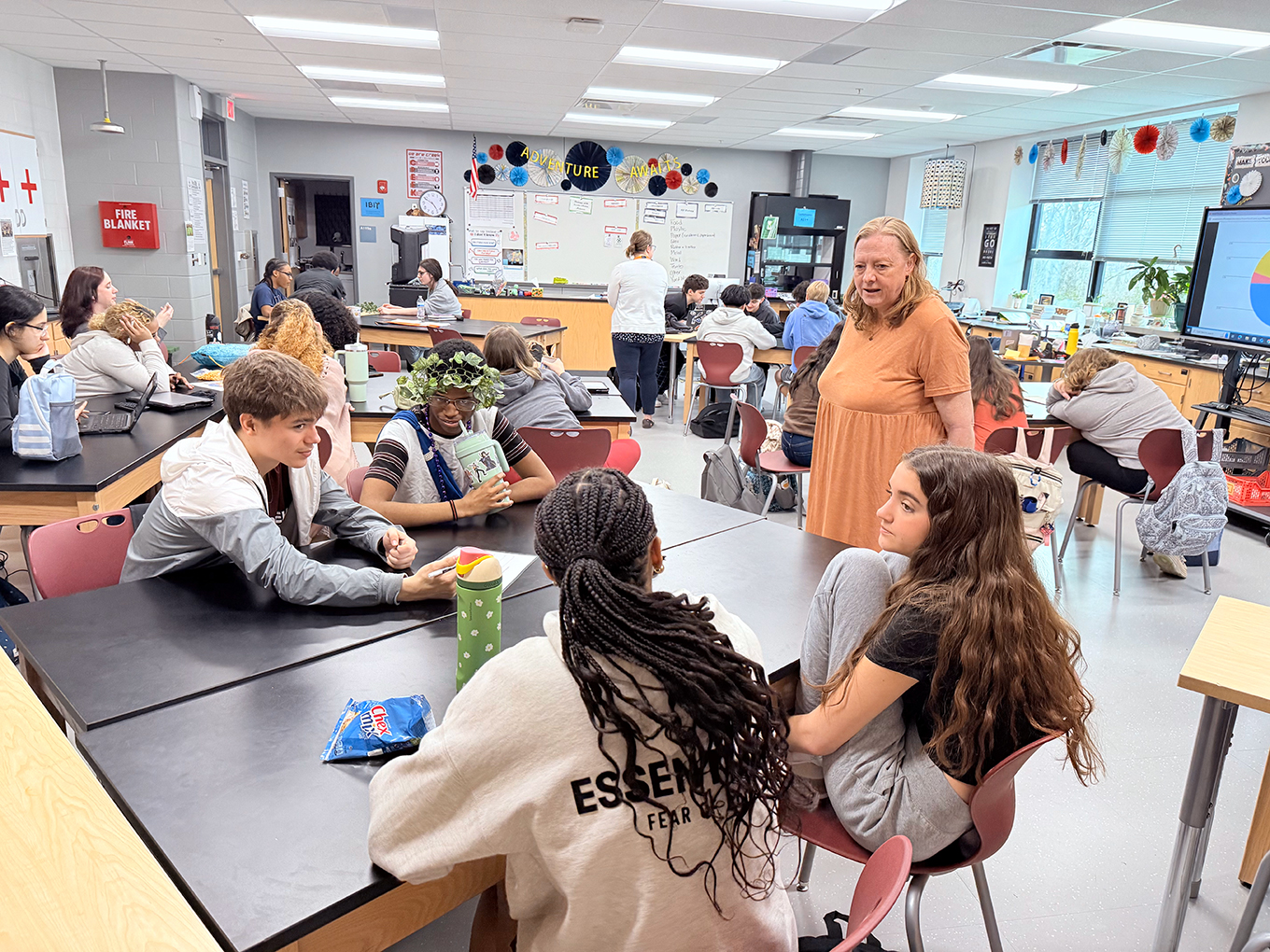
Joshua DeWar
I have struggled for years to express what it means to me to be a teacher. Many people have asked why I teach and I have given pat, perfunctory answers. It is something that is hard for me to explain, as it lies at the core of who I am and what I experienced growing up.
As a male, I feel called to teach for a deeper reason, however. In elementary education today there are few, if any, male teachers in most buildings.
I had the good fortune to serve as a faculty judge at a statewide Educators Rising convening in Louisville. The category I judged was called “Rising Moment.” During this event, students shared in a 4-minute speech why they want to be a teacher and told of their “rising moment,” the time when they knew they had been called into education.
Of the nine contestants whom I heard speak, two were males. Both (from different schools and different parts of the state) shared in their speeches that they were aspiring to be educators because, at one point in their school careers, they had had male teachers who “looked like them.” I sat in the audience inspired by what I had heard, and I found myself nodding along with their stories. This is the same feeling that burned inside of me. I became a teacher because of a desire to help others, but also because I too had once had a male teacher that “looked like me.”
At the end of their talks, my mind rewound to thoughts of my 4th-grade teacher, Mr. Tjaden. He was my first and only male educator until late middle school. Being around him inspired me to be better, to do more and to challenge myself. In fact, under his tutelage I received straight As for the first time in my life.
As a male growing up with a single mother and one sister, Mr. Tjaden was a link to what it meant to be a “cool guy.” It is not that I did not love my female teachers. Indeed, I did. It stands, however, that to him I felt a special connection, and it was him I wanted to emulate. I saw what I could be through him.
As teachers, we are many things to our students. We fix wounds of all sorts, and we help students learn to think critically, live ethically and cultivate their passions. However, one of our areas for continued growth is that of diversity of staffing. We need to offer students a wide variety of people with whom they can connect. Our schools must be filled with different role models, whether we’re talking about gender, race, ethnicity or any of the other ways in which we as humans are unique.
Ensuring our classrooms are staffed with individuals of different backgrounds means we are able to give students a wider view of society. Offering them a greater diversity of people also means they might be able to connect with someone who looks like them. The importance of that connection cannot be understated.
In my current role (and first year) as an assistant principal, I have the opportunity to connect with males who are often struggling for a variety of reasons. Being a male in this role helps me talk to them. I have shared many of their struggles. We talk, not face to face, but next to each other, often engaged in an activity. It breaks down the wall of vulnerability that often exists with men and helps me help them.
There is no better example than recently when a 1st-grade student I’ll call “Ethan” would not do his work during his resource time with his special education teacher, who is an incredibly talented educator. Ethan told her he would only “work for Mr. D.” Ethan wanted to sit next to me while he did his work. We laughed some and I did my best Yoda voice, which cracked him up. We have become connected in a deep way. Ethan’s father has been incarcerated, and Ethan has had little time with him in his small span of life. We found a unique bond in our gender. Students, like Ethan, need others who look like them with whom they can connect.
As I continued to reflect on this, I thought of the other times I have done similar things this year and during my time as a classroom teacher. Hunting bugs in the school playground or throwing the ball at recess was always fun, but it allowed me to build deep connections with students. In science, I remember bringing tadpoles and frogs to school, too. This engaged all students, but it got my male students exploring learning in a way that was meaningful to them.
As educators, we have the responsibility to recruit new individuals to our field and to impact the lives of those who will one day take our places in the classroom. As we think about this, I encourage all of Kentucky’s educators to actively support, mentor and engage males who are considering teaching.
Though every educator is valuable, male teachers are needed in the classroom today more than ever. As a teacher in 1st, 2nd and 5th grade, I connected with more students because of my gender than I would have thought possible. Bonding with other males by throwing a ball at recess or over talks of movies and video games not only made me happy, it also helped me help students to grow. It opened the door to conversations with young men about what it means to grow up and be male in our world today. This is especially important given how many of my male students do not have a male at home.
Our world is faced with many challenges in the arena of education that may cause many to shy away from pursuing a career as teacher. However, as educators it is our job to seek out the next generation of talented teachers and shepherd them into the roles of mentor, counselor and friend as others once did to us.
Males especially are needed as educators in today’s elementary classrooms. By working as current teachers to bring more males into the fold we will not only help our profession, we also will help a new generation of boys grow into successful men.
Joshua DeWar is a native of Janesville, Wis. He has lived in the Louisville area since 2010. DeWar worked in higher education as a student affairs professional and administrator for nine years before moving to the K-5 classroom in 2012. He currently serves as an assistant principal at Boston School (Nelson County). He holds a master’s in teaching from the University of Louisville, an educational specialist’s degree from Asbury University and a doctorate in education from Marian University. He was named the 2016 Kentucky Elementary School Teacher of the Year and serves as a 2017-19 Kentucky Hope Street Group Fellow.




I love your article!! Keep writing.